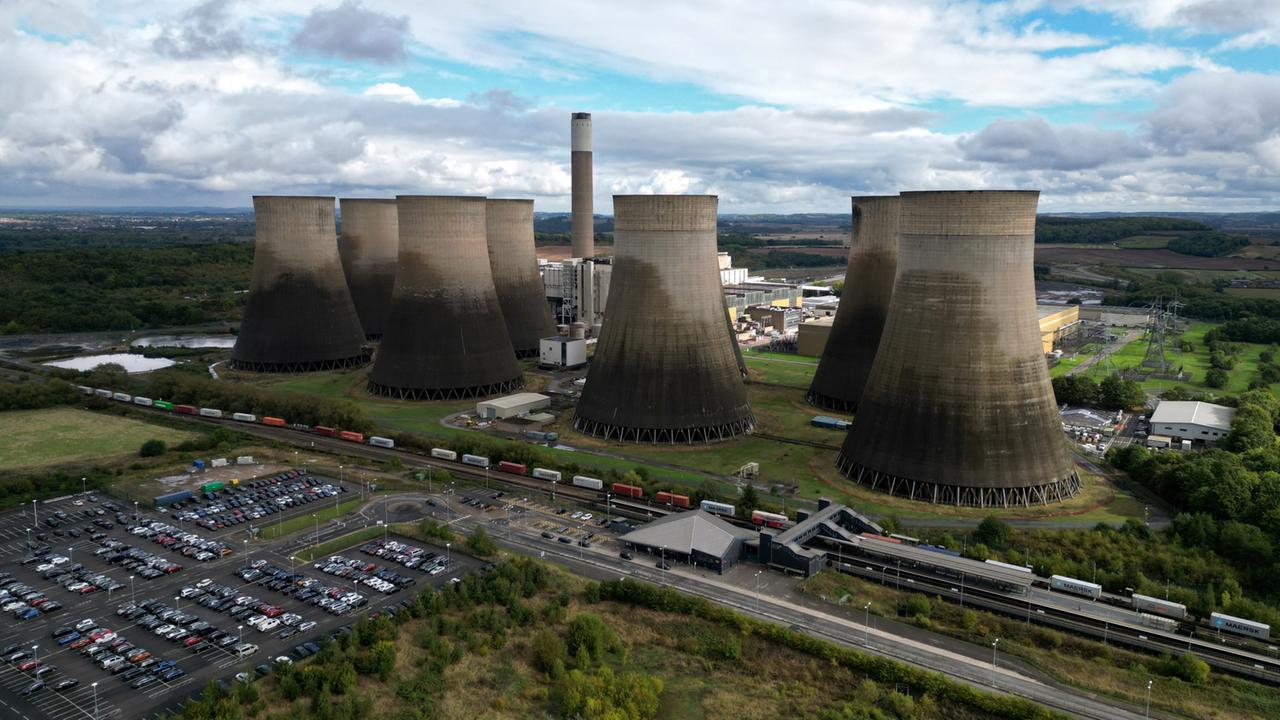After more than 140 years, Britain is phasing out coal-fired power generation. The last coal-fired power plant will be shut down in the evening. This makes the country the first large industrial country to become coal-free.
Richard Montgomery worked at this coal-fired power plant for 43 years. The engineer is one of the most senior members of staff at Ratcliffe-on-Soar. Of course he was sad to see the power plant closed. New coal was no longer delivered and electricity production is scheduled to stop this evening. Of course it made him proud to work here because the country needed him. “But now that time is over, the end of an era,” says Montgomery. “We have to look forward.”
The power plant is huge. The industrial plant was able to supply two million households with electricity. At its peak, 3,000 people worked here – around the clock.
Gas as a cleaner, cheaper alternative
The reasons for the rapid exit are varied. At the beginning of the 2000s, the requirements for keeping the air clean became stricter. The facilities had to be modernized. This caused the price of electricity production from coal to rise.
Gas became a cleaner and, above all, cheaper alternative, says Jess Ralston from the Energy and Climate Intelligence Unit think tank. “Britain produces gas in the North Sea, so it is economical to replace coal.” The share of gas in the 2022 electricity mix was more than 38 percent. In addition, electricity consumption in the United Kingdom has fallen in recent years – at the same time wind energy has increased.
Renewable energies have become more attractive
“Renewable energies are now competitive. It is attractive to invest here,” says Ralston. “So it went from coal to gas and now to renewable energies, also because the gas fields in the North Sea will soon be used up.”
For comparison: In Germany, the share of coal-fired electricity is 26 percent. At 32 percent, Germany also has a high share of wind power. This is even more than the UK. But Germany only has a few gas power plants and no more nuclear power. The share of nuclear power in Great Britain is 15 percent. The British are still building nuclear power plants, but that is extremely expensive – and there is the problem of final storage.
By 2035, Great Britain wants to design the electricity mix so that almost no CO2 is produced during production. The new Labor government is promoting the expansion of solar power generation. It should also become easier to build wind turbines in rural areas. This is likely to be successful primarily because the United Kingdom has numerous large electricity storage projects, says Ralston. The world's largest storage facility will be set up near Manchester.
Uniper wants to produce green hydrogen
The energy transition will also take place at the Ratcliffe-on-Soar site. The eight large cooling towers are to be demolished. The owner of the power plant, the German company Uniper, wants to produce green hydrogen here.
For Claire Taylor it is a moving moment when the cooling towers will soon be gone. She runs a pub in the area. A piece of home is lost for them. The cooling towers can be seen from afar. Her father also works in the coal-fired power plant. He now has to look for a new job.
Christoph Prössl, ARD London, tagesschau, September 30, 2024 8:10 a.m





